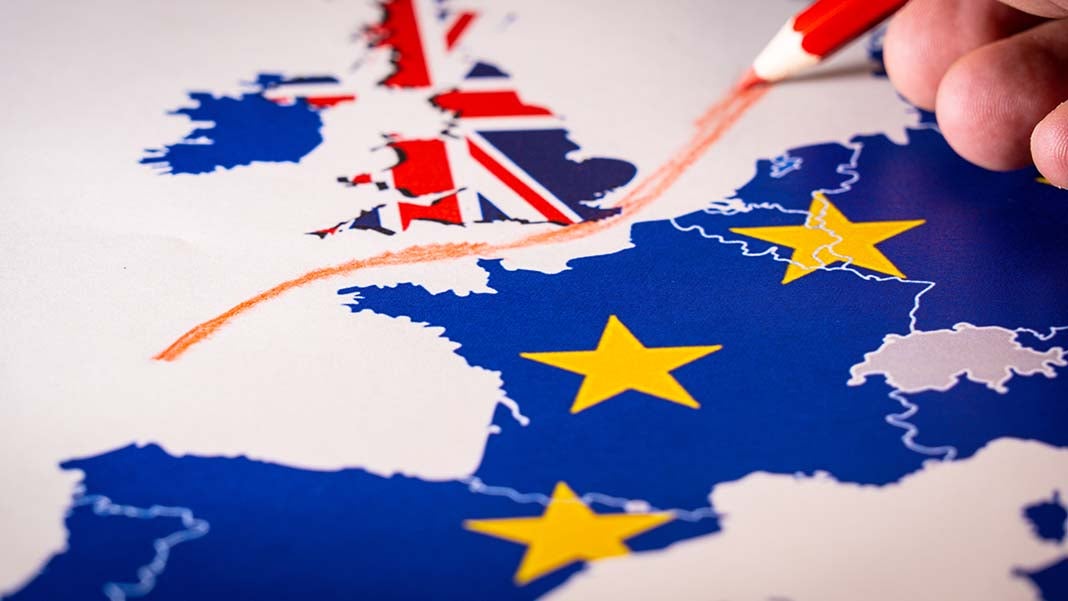Managing Uncertainty: How US Business Could Be Affected by Indecision Around Brexit
By: Terry Hearn

With the deadline for a Brexit deal moving ever closer, the lack of clarity and direction is beginning to become a very real concern for British industry as the prospect of a no-deal Brexit looks increasingly likely. But Brexit does not only affect Britain. While their people voted for the isolationist step to remove themselves from the top tables of international business and finance, the impact can be found in the U.S. and across the world.
The difficulty for a wide range of British-based industries is that the future of everything from trade deals and import/export tariffs, to staff’s eligibility to work, is all still uncertain. As a key success story of recent years, the British plastics industry saw a turnover of £25.5 billion in 2017. But with 69% of trade occurring within the EU, it is a sector that is especially reliant on a good Brexit deal for the UK.
As an independent foam manufacturer and convertor based in the UK, Duncan Geddes, Managing Director Technical Foam Services, is in an ideal position to discuss the potential impact of Brexit on the plastics industry.
“Uncertainty is starting to have a significant impact on investment from the UK.” said Duncan, “Whether a withdrawal agreement can be agreed or not, businesses will have their eye on the leaving date and work towards that. The impact could see negative impacts on the British economy including job losses and continued drops in investment the closer March comes.”
A strong dollar
International markets, which are infamously nervous when it comes to uncertainty have seen the pound drop in value at key points of the Brexit process. There is no doubt that Europe is a financial superpower, but can their struggles be a boost for American industry?
Thanks to the consistency of the dollar, it is reliably stronger than either the euro or pound and is likely to remain so for the next few years. This means US businesses will have an edge over their European competitors in terms of buying power. The import of goods will also be cheaper, allowing American industry to import raw materials and manufacture products with a higher profit margin.
However, U.S. companies that export heavily or conduct a large part of their sales internationally may suffer as a result of a strong dollar. While there is a natural balance that seems to come in to play as exchange rates fluctuate, Brexit is a unique occurrence.
The U.S. Dollar will likely continue to ride out the impact, but America’s businesses should be prepared for international trading partners to have a weaker currency for years, or even decades, to come.
A gateway into Europe?
U.S. companies employ more than one million people in Britain and, excluding the EU, are the UK’s most significant investor. Britain has a similar level of investment in the U.S., meaning that Brexit could impact up to 2 million jobs between the two countries.
For many U.S. businesses, the UK is the ideal location to setup in order to make use of EU trade laws. While this has been a long-standing traditional strategy, this may change in the coming months.
Companies that trade in the UK will be subject to any trade agreements and the challenges of dealing with a weak pound. This puts them at the mercy of the Brexit discussions. Favourable terms for The City could be beneficial, but as it stands, many U.S. companies are stuck in the same uncertainty as the Brits.
As the impasse continues, there is a growing sense that businesses will not wait for the final Brexit deal before acting. Those that have contingency plans are expected to begin taking steps by the end of 2018 in an effort to prepare for the potential damage that could come from a No-deal Brexit in March 2019.
JP Morgan moved hundreds of jobs out of London and into Dublin, Frankfurt, Germany and Luxembourg earlier this year as part of their Brexit plan, and the Bank of America have announced that they are planning to move their EU headquarters from London to Dublin. UBS are also in the process of relocating 1,000 employees from the UK to Germany, demonstrating that while Brexit is a very British problem, the impact is spreading much further afield.
Japanese business chiefs have also made clear that if Britain becomes unfavourable to foreign investors they will move their operations out of the UK and into mainland Europe.
A New Deal
When Britain is outside the EU, it will have to negotiate new agreements with individual nations over trade. This process will not be able to begin until the transitional period ends in 2020, but the U.S. government has already declared that America is “very keen” to form a new deal with the UK as soon as the option is available. The reason for this eagerness may well be because the US will be holding the stronger hand in these negotiations, and that could see improved terms for American businesses.
While this would certainly be a benefit of retaining close ties with the UK, U.S. products post-Brexit could face two sets of tariffs, first in the UK and then when they move into the EU. While the British government could adjust their tariffs, the EU are likely to renegotiate the rules around the practices as part of trade negotiations.
Though it goes without saying that it’s the UK that will feel the effects of Brexit the most, American businesses shouldn’t be complacent. The UK’s powerful influence on EU decision-making will be sorely missed in the US once it is gone, but it’s Brexit’s impact on the cost of international trading that will likely have the most noticeable consequences for organisations around the world.
2212 Views











